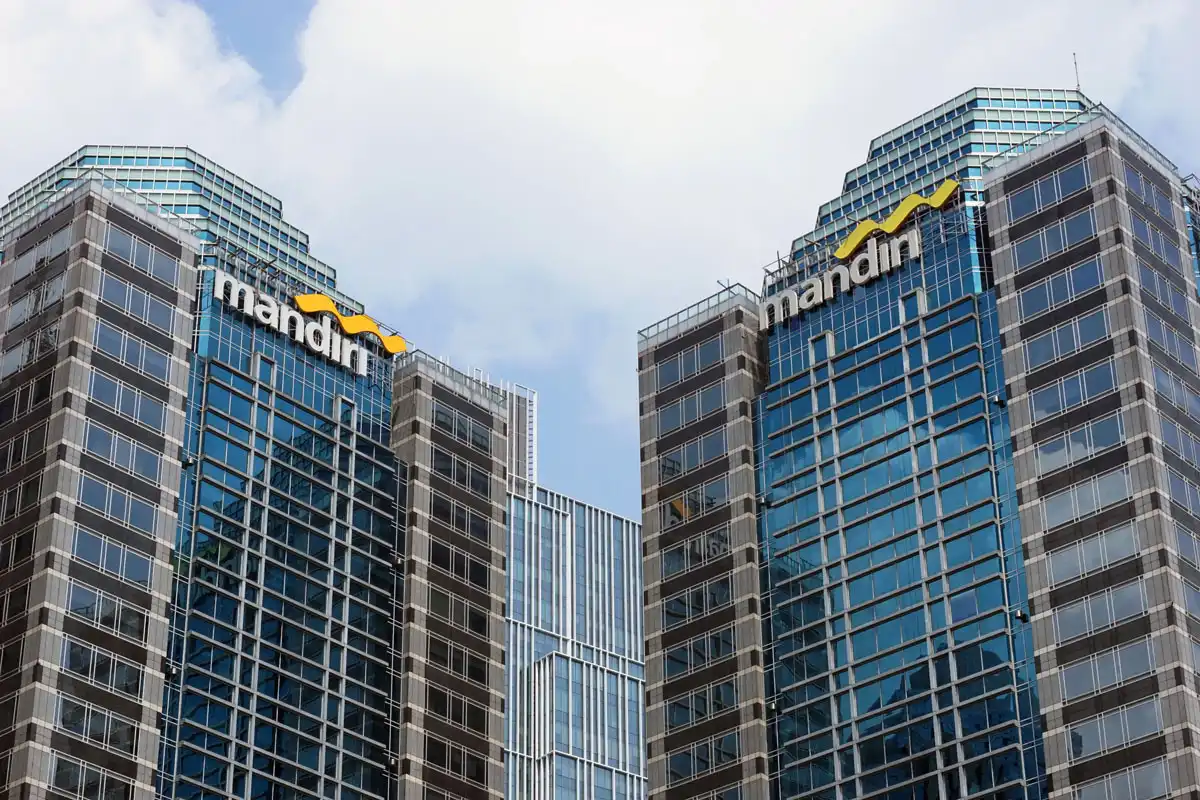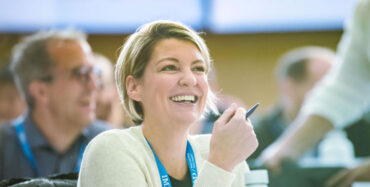In today’s volatile and complex global market, leadership development is a critical investment for organizations striving to maintain a competitive edge and ensure long-term success. Bank Mandiri, the leading financial institution in Indonesia, has undergone several transformations since the late 1990s to accelerate growth. More recently, the bank recognized that it urgently needed to prepare its leadership team for navigating challenges such as changing consumer behaviors, a highly competitive digital space, and its duty as a state-owned enterprise to uplift underserved rural areas.
To support their leadership teams, Bank Mandiri partnered with IMD to design a transformative leadership program to help them develop new skills, competencies, and behaviors to ensure the bank remains future-ready. Led by Program Director Ric Roi, the end goal of the program was to put the leadership teams on the path to realizing the bank’s mandate of becoming not just a top bank in the region, but one in a league of its own.
Read on for his reflection on the program and his perspective on executive education in Asia.
Could you describe the program you led for Bank Mandiri?
Roi: We initiated a multi-tiered program tailored to different leadership levels within Bank Mandiri. Starting with ‘Insight Sessions’ for the Board of Directors, we presented cutting-edge topics relevant to Mandiri’s transformation goals to create a shared understanding and awareness among the top leadership of the core principles of transformation based on the latest research and academic perspectives. Then, we branched out to the various levels of management with more execution-focused programs.
Our distinction comes with our faculty’s expertise in both academic research and real-world experience, which positions us at a unique intersection where we can offer insights ahead of market trends. For an industry-leading institution like Bank Mandiri, which was undergoing significant transformation, this forward-thinking perspective was invaluable.
Ambidextrous leadership was a significant focus of the program. Why the strong emphasis?
Roi: Amidst global volatility and market uncertainty, future-ready organizations are the ones that are most likely to succeed. Our research has shown that ambidexterity, or the dual transformation ability to maintain a resilient core business while simultaneously creating next-generation products, services, and business models, is a strong indicator of an organization’s future readiness.
Ambidextrous leadership is about managing and excelling in this dual approach of operating a robust existing business while innovating for the future. It’s a model that Bank Mandiri resonated with as they were navigating through their transformation. What makes our program uniquely effective for Bank Mandiri is the customization and proprietary tools we offer. We have our own leadership assessments and psychometrics including a global leaders database which we continuously research and develop to ensure it predicts executive performance effectively.
IMD’s custom leadership programs run for six to nine months. How was Bank Mandiri’s program designed to keep participants engaged throughout?
Roi: Creating a multifaceted experience was top of mind when we designed the program. To me, this meant creating meaningful touchpoints throughout the program journey. Classroom sessions and individual or group coaching aside, we made sure to include highly immersive and experiential learning experiences like week-long workshops and company visits for participants to learn from other successful companies within or outside of their industry.
Beyond hard skills, we also emphasize the development of skills like communication and personal resilience. For our program, we had professional actors come in and teach participants how to be more present, spontaneous, and confident, as well as experts on sleep and brain health to help participants optimize these areas of their lives. In between these touchpoints, participants get focused content releases such as case studies, articles, and videos to keep the interest and momentum high.
What are some of your learnings from this program?
Roi: While the program is active, we closely monitor real-time feedback from participants and faculty and make necessary adjustments to all aspects from content to delivery. One of the key insights from delivering programs in this region has been the importance of cultural sensitivity in leadership training, especially in areas like top-down leadership versus shared leadership and accountability. This necessitates our efforts in promoting distributed leadership and decision-making. The challenge is to transform leaders from operators to strategic thinkers who are willing to speak up and challenge the status quo, but still in a way that respects and aligns with the cultural traditions and norms.
These insights guide us in how we adapt US and European management practices effectively within different contexts here in Asia, which is one of our key differentiators. Understanding and respecting the historical cultural traditions and power dynamics is key to us realizing our commitment to developing the next generation of Indonesian leaders.
Finally, what do you find most exhilarating or fulfilling about being in the executive education industry?
Roi: There’s a palpable hunger for knowledge and development here in Indonesia that tends to surpass that in more mature markets. I’m particularly drawn to the eagerness of leaders here, who are very open-minded to learning. This, coupled with the diversity of the faculty, coaches, and resources we bring together, makes the design aspect of the program very interesting. Given my background as a former executive and now an academic in this space, the opportunity to work with and support these leaders is highly rewarding for me as I can see aspects of my younger self as a manager in better understanding their personal management challenges.
I see a paradigm shift in the executive education industry in the next decade for more person-centered and dynamic learning approaches supported by technology like generative AI. As a result, I believe the traditional role of a professor as the sole expert and source of these hard-to-find insights will evolve and our role as educators will have to evolve accordingly. We’re moving towards a future where the emphasis will be on curating personalized journeys that align and adapt to each leader’s growth within their organization and career path, and at IMD, we’re already working towards evolving our leadership performance model in anticipation of these changes. I’m truly excited for what’s to come.
Interested to learn more about Bank Mandiri’s custom leadership development program and its impact on the organization’s leaders? Explore Bank Mandiri’s journey.



